-
 Bitcoin
Bitcoin $83,649.7703
-1.06% -
 Ethereum
Ethereum $1,818.4708
-2.72% -
 Tether USDt
Tether USDt $1.0000
0.01% -
 XRP
XRP $2.0495
-3.21% -
 BNB
BNB $597.8591
-1.20% -
 Solana
Solana $118.6021
-5.26% -
 USDC
USDC $1.0000
0.01% -
 Dogecoin
Dogecoin $0.1642
-3.52% -
 Cardano
Cardano $0.6526
-2.99% -
 TRON
TRON $0.2343
-0.56% -
 Toncoin
Toncoin $3.7346
-7.00% -
 UNUS SED LEO
UNUS SED LEO $9.4260
0.63% -
 Chainlink
Chainlink $12.9796
-3.63% -
 Stellar
Stellar $0.2617
-1.79% -
 Avalanche
Avalanche $18.3920
-4.15% -
 Sui
Sui $2.3105
-2.61% -
 Shiba Inu
Shiba Inu $0.0...01222
-0.74% -
 Hedera
Hedera $0.1630
-1.67% -
 Litecoin
Litecoin $83.6143
1.85% -
 Polkadot
Polkadot $4.0068
-2.05% -
 MANTRA
MANTRA $6.3564
2.37% -
 Bitcoin Cash
Bitcoin Cash $306.7380
0.76% -
 Bitget Token
Bitget Token $4.5736
-0.36% -
 Dai
Dai $1.0001
0.01% -
 Ethena USDe
Ethena USDe $0.9998
0.00% -
 Pi
Pi $0.6284
-6.81% -
 Hyperliquid
Hyperliquid $11.9330
-10.11% -
 Monero
Monero $213.7810
-0.49% -
 Uniswap
Uniswap $5.9757
-2.02% -
 Aptos
Aptos $5.2294
-1.01%
What is the difference between Hang Seng Index contracts and leverage trading?
Hang Seng Index contracts offer diversified exposure to Hong Kong stocks, while leverage trading amplifies profit and loss potential through borrowed funds, requiring higher risk tolerance.
Dec 16, 2024 at 10:34 am
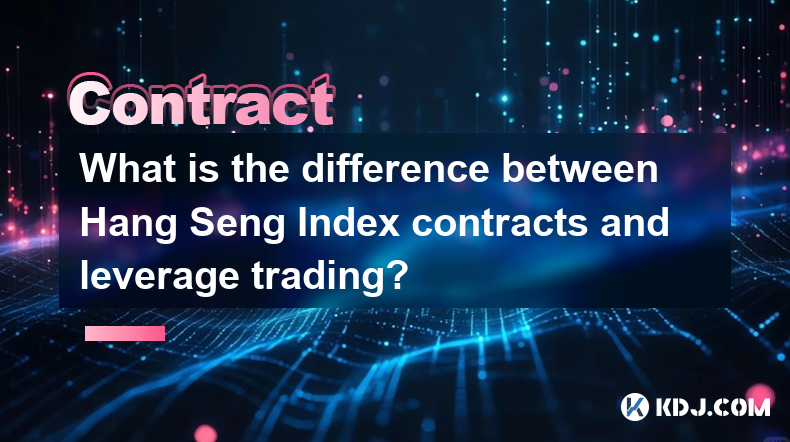
Understanding the Key Differences Between Hang Seng Index Contracts and Leverage Trading
Introduction
Hang Seng Index (HSI) contracts and leverage trading are two distinct financial instruments that are commonly used by traders to speculate on the price movements of financial assets. While both strategies involve leveraging capital to amplify potential returns, they differ significantly in their mechanics, risks, and suitability for different traders. This article provides a comprehensive comparison between Hang Seng Index contracts and leverage trading, highlighting their key differences and providing guidance on selecting the appropriate trading strategy based on individual needs and risk appetite.
Hang Seng Index Contracts
1. What are Hang Seng Index Contracts?
Hang Seng Index (HSI) contracts are financial derivatives that track the performance of the Hang Seng Index, a benchmark stock market index that measures the performance of the 50 largest companies listed on the Hong Kong Stock Exchange. These contracts allow traders to speculate on the price movements of the underlying index without having to purchase the individual stocks that comprise it.
2. How do Hang Seng Index Contracts Work?
HSI contracts are futures contracts, which means they represent an agreement to buy or sell the underlying asset (the Hang Seng Index) at a predetermined price on a specified future date. Traders can enter into HSI contracts by opening both long or short positions, depending on whether they anticipate the index will increase or decrease in value, respectively.
3. Benefits of Hang Seng Index Contracts:
- Diversification and Hedging: HSI contracts provide traders with a single instrument to gain exposure to a basket of stocks, reducing the risk associated with investing in individual companies.
- Leverage and Capital Efficiency: Margin trading in HSI contracts allows traders to utilize leverage, which enables them to control a larger position with a smaller amount of capital.
- Flexibility and Accessibility: HSI contracts are traded on regulated exchanges, offering transparency, liquidity, and ease of access.
4. Risks of Hang Seng Index Contracts:
- High Volatility: The Hang Seng Index can experience significant fluctuations in value, which can lead to substantial losses if traders are not cautious.
- Margin Calls: Leverage trading amplifies potential profits, but it also increases the risk of margin calls, which require traders to deposit additional funds to maintain their positions.
- Expiration Risk: HSI contracts have a predefined expiration date, and any open positions must be closed before that date. If the price of the underlying asset moves against the trader's position, significant losses can occur upon contract expiration.
Leverage Trading
1. What is Leverage Trading?
Leverage trading is a trading strategy that allows traders to amplify their potential returns by using borrowed funds to increase their buying power. Leverage is typically expressed as a ratio, such as 2:1, 5:1, or 10:1, which indicates the amount of capital a trader can control relative to their deposited funds.
2. How does Leverage Trading Work?
When a trader opens a leveraged position, they borrow funds from a broker or exchange to increase their buying power. This enables them to execute larger trades than they would be able to with their own capital alone. For example, with a leverage ratio of 10:1, a trader can control $100,000 worth of assets by depositing only $10,000.
3. Benefits of Leverage Trading:
- Increased Profit Potential: Leverage can magnify potential profits by increasing the trader's buying power.
- Flexibility and Versatility: Leverage trading can be applied to a wide range of financial instruments, including currencies, commodities, stocks, and cryptocurrencies.
- Hedging and Diversification: Leveraged positions can be used to hedge against other positions or to diversify an existing portfolio.
4. Risks of Leverage Trading:
- Magnified Losses: Leverage also magnifies potential losses, as even small price movements can result in substantial capital depletion.
- Margin Calls and Liquidation: If losses exceed the trader's deposited funds, a margin call may occur, requiring additional capital to maintain the position. Failure to meet a margin call can lead to forced liquidation, where the trader's positions are closed and any remaining funds are returned.
- Emotional Trading: The allure of increased profit potential can lead to emotional trading, where traders make irrational decisions due to the psychological pressures associated with leveraged trading.
Comparison of Hang Seng Index Contracts and Leverage Trading
1. Underlying Asset:
- HSI contracts: Hang Seng Index (basket of 50 Hong Kong stocks)
- Leverage trading: Any financial instrument that supports leveraged trading (e.g., currencies, commodities, stocks, cryptocurrencies)
2. Trading Mechanism:
- HSI contracts: Futures contracts traded on regulated exchanges
- Leverage trading: Can be executed through a broker or exchange using borrowed funds
3. Capital Requirements:
- HSI contracts: Margin trading is available, but traders must deposit significant capital to open and maintain positions
- Leverage trading: Requires a smaller deposit compared to the size of the position controlled due to the use of borrowed funds
4. Profit Potential and Risks:
- HSI contracts: High potential for profits and losses due to volatility in the underlying index
- Leverage trading: Magnified profit and loss potential due to leverage amplification, leading to higher risks
Choosing Between Hang Seng Index Contracts and Leverage Trading
The choice between Hang Seng Index contracts and leverage trading depends on several factors:
- Risk Tolerance: Leverage trading carries higher risks, so traders with a lower risk appetite should opt for HSI contracts.
- Trading Objectives: Traders seeking long-term exposure to the Hong Kong market may prefer HSI contracts. Leverage trading is better suited for short-term traders looking to capitalize on market
Disclaimer:info@kdj.com
The information provided is not trading advice. kdj.com does not assume any responsibility for any investments made based on the information provided in this article. Cryptocurrencies are highly volatile and it is highly recommended that you invest with caution after thorough research!
If you believe that the content used on this website infringes your copyright, please contact us immediately (info@kdj.com) and we will delete it promptly.
- FDUSD, BTC, TUSD, SEI, and LINK are the top 5 virtual asset-related keywords attracting the most interest
- 2025-04-03 15:45:12
- Bitcoin Pepe (BPEP) could hit $250 in four years
- 2025-04-03 15:45:12
- TAO Breaks Resistance, HYPE Dips 14%— Yet BlockDAG PullS in $210M Following Keynote 3 Launch!
- 2025-04-03 15:40:13
- Dogecoin (DOGE) Price Prediction: An Analyst Highlights a Bullish Divergence, Suggesting a Rally Could Be in the Cards
- 2025-04-03 15:40:13
- XRP Navigates Volatile Waters, Targeting a Breakout From Its Range
- 2025-04-03 15:35:27
- Meme Cryptocurrency Dogecoin DOGE/USD Falls After President Donald Trump's Tariff Shock, Extending Weekly Losses to Over 16%
- 2025-04-03 15:35:27
Related knowledge
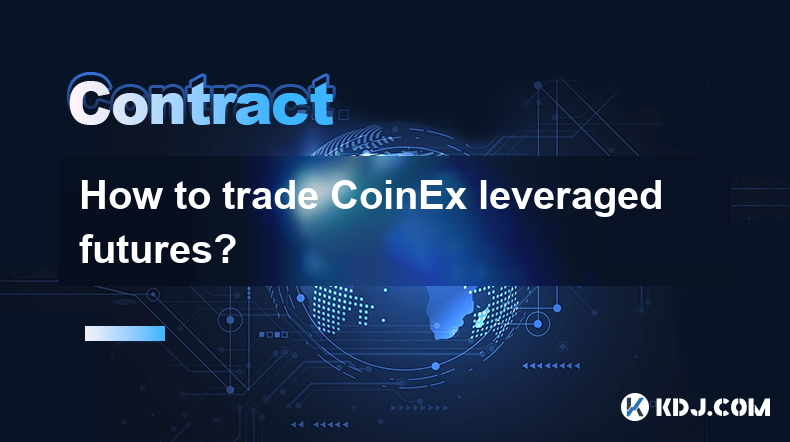
How to trade CoinEx leveraged futures?
Apr 03,2025 at 03:56am
Trading leveraged futures on CoinEx can be an exciting way to potentially amplify your profits in the cryptocurrency market. Leveraged futures allow traders to borrow funds to increase their trading position, which can lead to higher returns, but also comes with increased risk. In this article, we will guide you through the process of trading CoinEx lev...
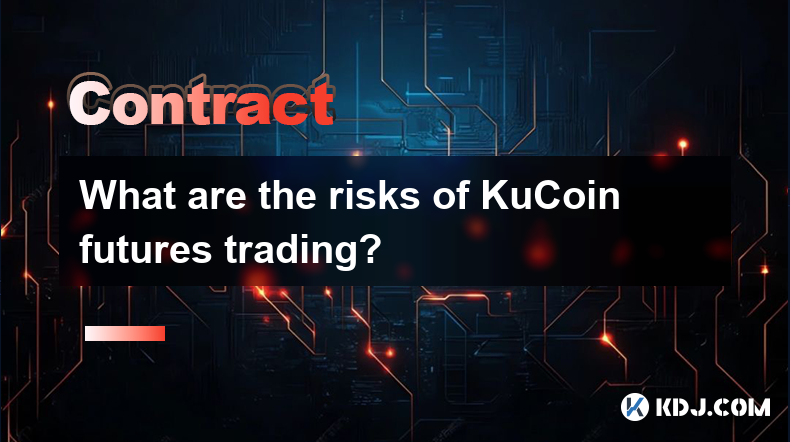
What are the risks of KuCoin futures trading?
Apr 03,2025 at 01:14am
KuCoin futures trading offers traders the opportunity to speculate on the future price of cryptocurrencies, but it comes with its own set of risks that traders need to be aware of. Understanding these risks is crucial for anyone looking to engage in futures trading on the KuCoin platform. This article will delve into the various risks associated with Ku...
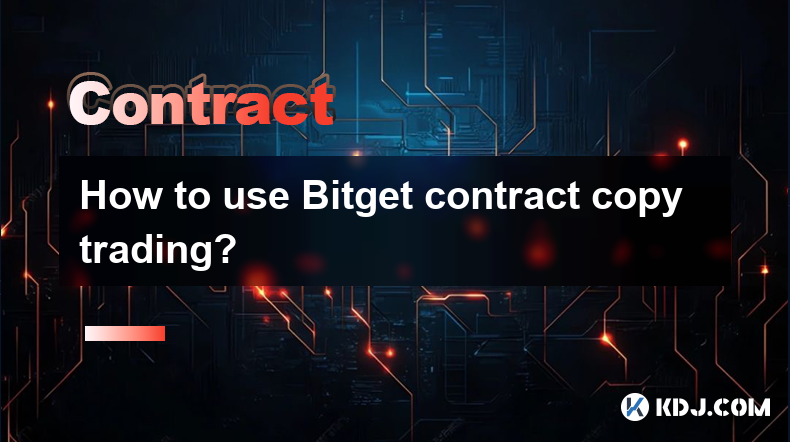
How to use Bitget contract copy trading?
Apr 03,2025 at 08:28am
Bitget's contract copy trading feature allows users to automatically replicate the trades of experienced traders, known as 'lead traders.' This can be a valuable tool for those looking to benefit from the expertise of others without having to spend time analyzing the market themselves. To start using this feature, you first need to understand how to sel...
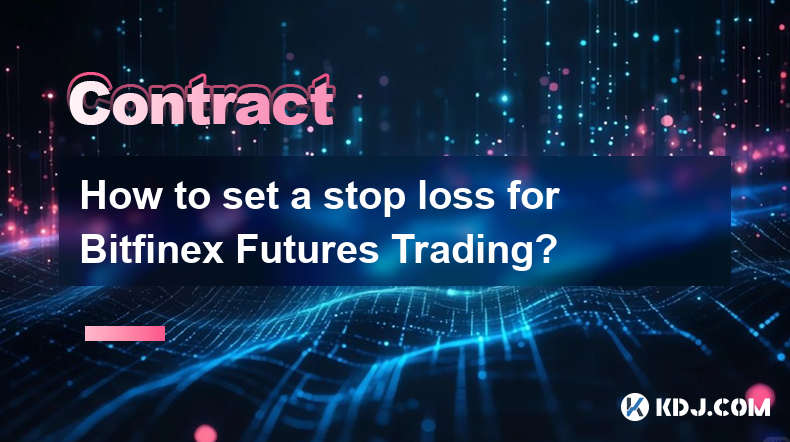
How to set a stop loss for Bitfinex Futures Trading?
Apr 03,2025 at 12:35pm
Setting a stop loss for Bitfinex Futures Trading is an essential risk management strategy that can help traders limit potential losses. A stop loss order is an instruction to sell a futures contract when it reaches a certain price, helping you to manage your exposure in volatile markets. To set a stop loss on Bitfinex, you need to navigate through the p...
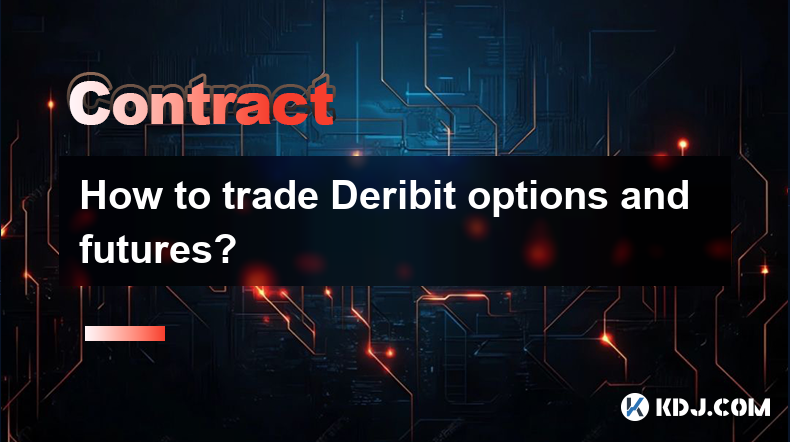
How to trade Deribit options and futures?
Apr 03,2025 at 02:00pm
Trading Deribit options and futures can be an exciting venture for those interested in the cryptocurrency market. Deribit, a leading platform for crypto derivatives, offers a variety of trading instruments including options and futures on Bitcoin and Ethereum. To successfully trade on Deribit, it's essential to understand the basics of these financial i...
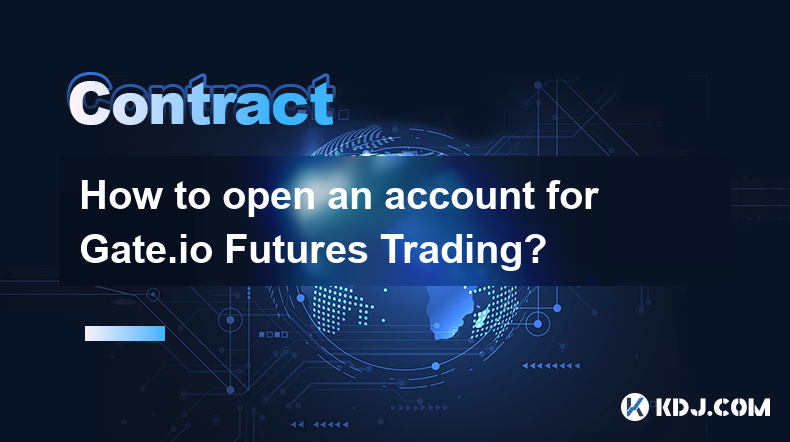
How to open an account for Gate.io Futures Trading?
Apr 03,2025 at 09:01am
Opening an account for Gate.io Futures Trading is a straightforward process that allows you to dive into the exciting world of cryptocurrency futures. To get started, you'll need to follow a few simple steps to ensure your account is set up correctly and securely. This guide will walk you through the process, from registering on the Gate.io platform to ...

How to trade CoinEx leveraged futures?
Apr 03,2025 at 03:56am
Trading leveraged futures on CoinEx can be an exciting way to potentially amplify your profits in the cryptocurrency market. Leveraged futures allow traders to borrow funds to increase their trading position, which can lead to higher returns, but also comes with increased risk. In this article, we will guide you through the process of trading CoinEx lev...

What are the risks of KuCoin futures trading?
Apr 03,2025 at 01:14am
KuCoin futures trading offers traders the opportunity to speculate on the future price of cryptocurrencies, but it comes with its own set of risks that traders need to be aware of. Understanding these risks is crucial for anyone looking to engage in futures trading on the KuCoin platform. This article will delve into the various risks associated with Ku...

How to use Bitget contract copy trading?
Apr 03,2025 at 08:28am
Bitget's contract copy trading feature allows users to automatically replicate the trades of experienced traders, known as 'lead traders.' This can be a valuable tool for those looking to benefit from the expertise of others without having to spend time analyzing the market themselves. To start using this feature, you first need to understand how to sel...

How to set a stop loss for Bitfinex Futures Trading?
Apr 03,2025 at 12:35pm
Setting a stop loss for Bitfinex Futures Trading is an essential risk management strategy that can help traders limit potential losses. A stop loss order is an instruction to sell a futures contract when it reaches a certain price, helping you to manage your exposure in volatile markets. To set a stop loss on Bitfinex, you need to navigate through the p...

How to trade Deribit options and futures?
Apr 03,2025 at 02:00pm
Trading Deribit options and futures can be an exciting venture for those interested in the cryptocurrency market. Deribit, a leading platform for crypto derivatives, offers a variety of trading instruments including options and futures on Bitcoin and Ethereum. To successfully trade on Deribit, it's essential to understand the basics of these financial i...

How to open an account for Gate.io Futures Trading?
Apr 03,2025 at 09:01am
Opening an account for Gate.io Futures Trading is a straightforward process that allows you to dive into the exciting world of cryptocurrency futures. To get started, you'll need to follow a few simple steps to ensure your account is set up correctly and securely. This guide will walk you through the process, from registering on the Gate.io platform to ...
See all articles























































































